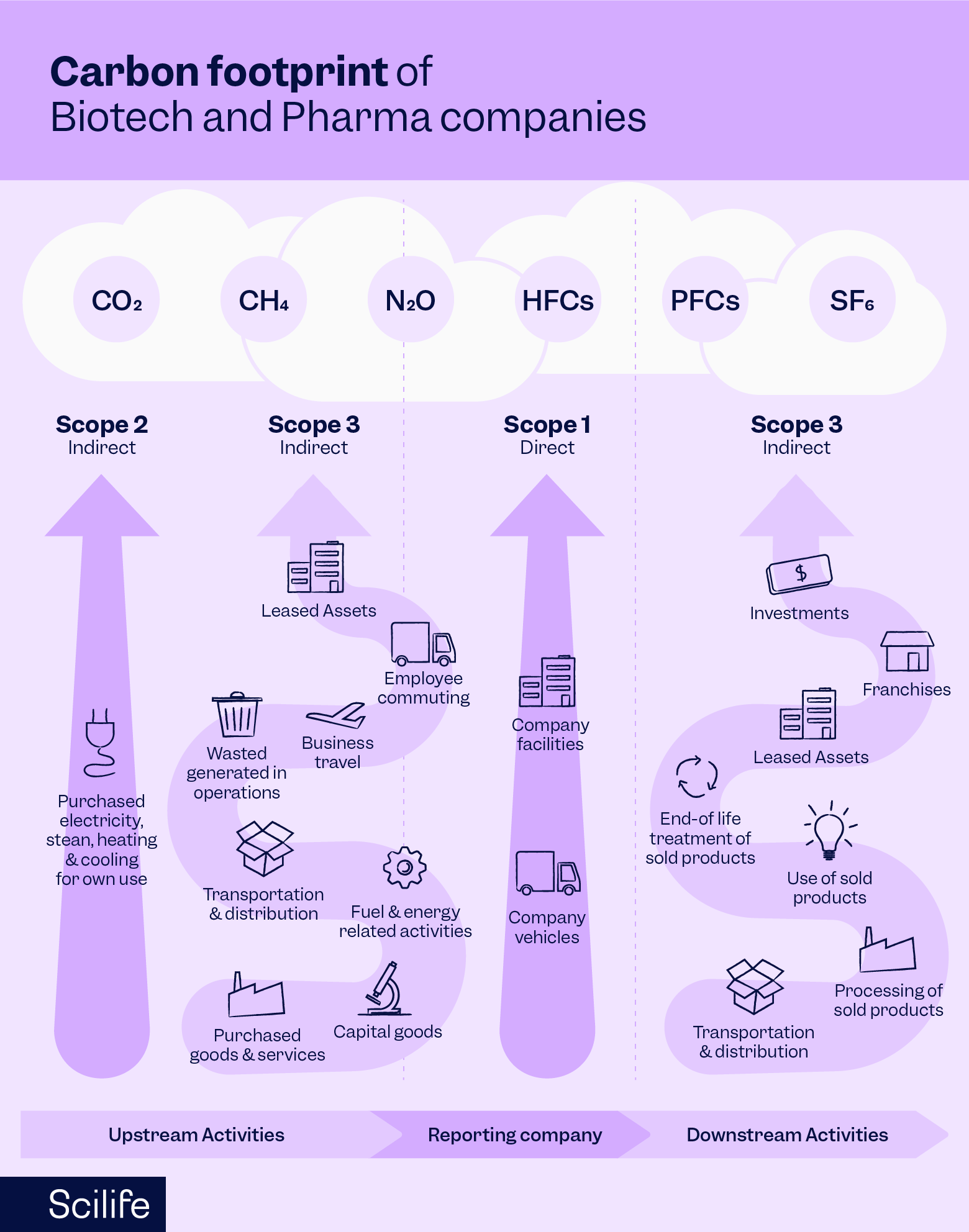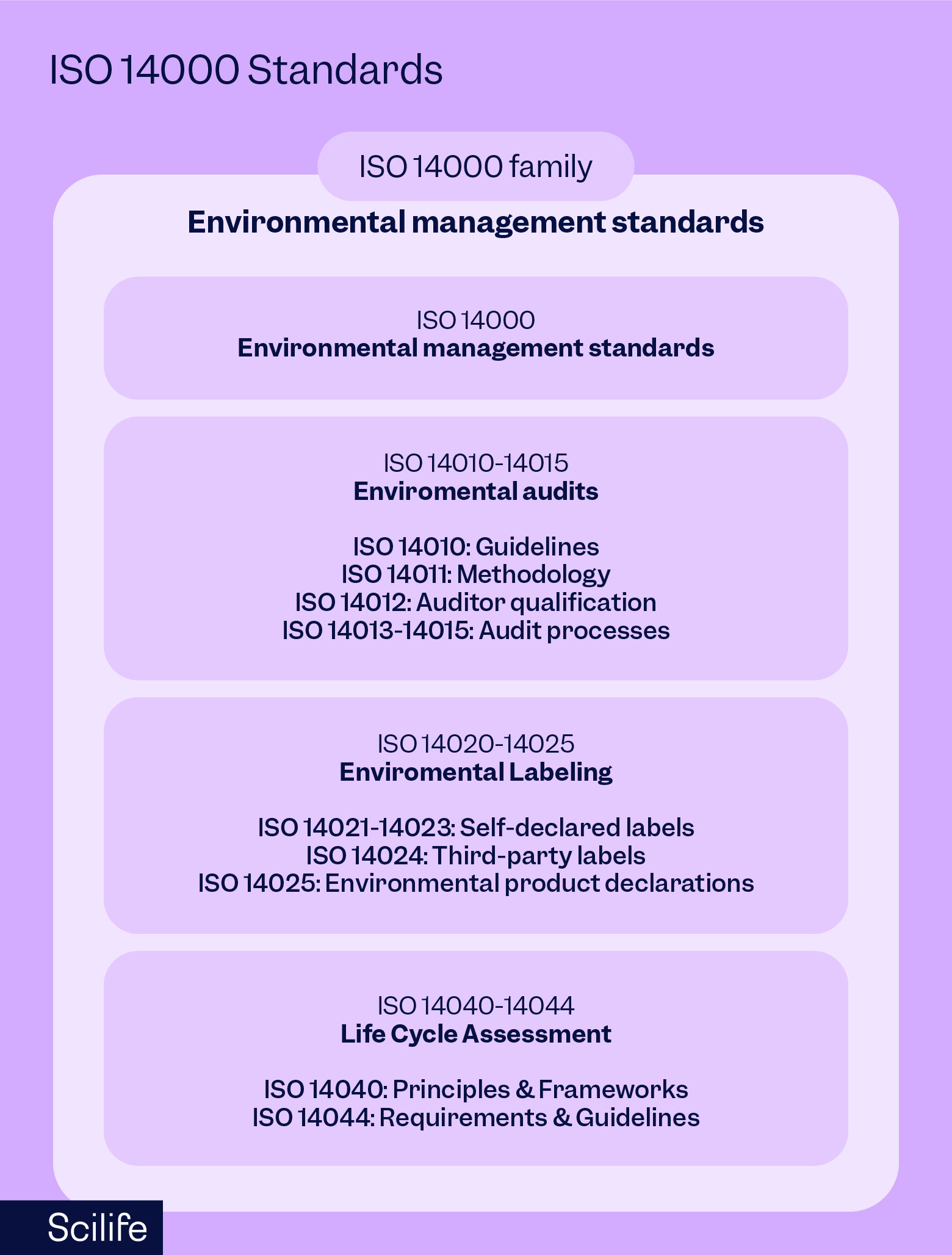
In today's world, environmental sustainability has become increasingly urgent. The planet, and by extension its people, is under pressure, and all evidence points towards increasingly critical consequences if we do not act. Industries around the globe, including life sciences organizations such as pharmaceutical, biotechnology, medical device, and healthcare companies, are under growing pressure to reduce their carbon footprint and adopt sustainable practices.
In this context, the role of Quality Management Systems (QMS) has evolved beyond its traditional focus on product quality and regulatory compliance. Now, more than ever, QMS is recognized as a powerful tool for driving environmental sustainability within scientific and medical organizations.
What can life sciences organizations do to reduce their carbon footprint?
Making safe and effective medical devices is not exactly a walk in the park. Most life sciences organizations operate within a complex ecosystem that involves resource-intensive processes, extensive energy consumption, and significant waste generation. To effectively reduce their carbon footprint, companies within these industries must adopt a multifaceted approach that addresses various aspects of their operations:
- Improving their energy efficiency: Implementing energy-efficient technologies and practices can significantly reduce the environmental impact of manufacturing processes, laboratory operations, and facility management. From upgrading equipment to optimizing energy usage, life sciences organizations can minimize carbon emissions while lowering operational costs.
- Setting up sustainable procurement practices: Adopting sustainable procurement practices involves sourcing materials and supplies from environmentally responsible suppliers. Organizations can minimize their environmental footprint throughout the supply chain by prioritizing suppliers with robust environmental management systems and eco-friendly products.
- Reconsidering waste reduction and recycling initiatives: Developing waste reduction strategies and promoting recycling initiatives can help life sciences organizations minimize waste generation and maximize resource utilization. Whether through recycling laboratory materials, reducing packaging waste, or implementing composting programs, these efforts contribute to a more sustainable operating environment.
- Adopting renewable energy sources: Embracing renewable energy sources, such as solar, wind, and hydroelectric power, can further reduce carbon emissions and enhance the sustainability of life sciences operations. By investing in renewable energy infrastructure and incorporating clean energy solutions into their facilities, organizations can decrease their reliance on fossil fuels and mitigate their environmental impact.
Environmental sustainability can be incorporated into almost every aspect of production through holistic thinking and lifecycle management of every component and process.

ISO 14000 and ISO 14001 Certification: A step toward sustainability
ISO 14000 is a series of international standards developed by the International Organization for Standardization (ISO) to address various aspects of environmental management. Among these standards, ISO 14001 specifically focuses on establishing an Environmental Management System (EMS) within organizations. Attaining ISO 14001 certification demonstrates a commitment to environmental stewardship and provides a framework for continuous improvement in environmental performance.
For life sciences organizations, ISO 14001 certification is a strategic imperative for integrating sustainability into their operations. By adopting ISO 14001 principles, organizations within the medical, pharmaceutical, or biotechnology fields can:
- Identify and assess environmental aspects and impacts of their activities, products, and services.
- Establish environmental objectives and targets to reduce their carbon footprint, conserve resources, and minimize pollution.
- Implement operational controls and procedures to monitor and mitigate environmental risks, ensuring compliance with regulatory requirements.
- Conduct regular audits and reviews to evaluate the effectiveness of their environmental management system and identify opportunities for improvement.

How can an eQMS help organizations become more sustainable?
Electronic Quality Management Systems (eQMS) offer a comprehensive platform for managing quality processes, documentation, and compliance requirements in a digital environment. It is common knowledge that implementing an eQMS is the most straightforward way to establish and implement quality management systems in any organization, let alone medical device and pharmaceutical organizations.
But did you also know that leveraging an eQMS can provide companies with the tools and capabilities to effectively integrate sustainability practices into their operations?
Here are a few key features where an eQMS can contribute to environmental sustainability:
- Centralized documentation and communication: An eQMS is a centralized repository for environmental policies, procedures, and guidelines, facilitating easy access and dissemination of information across the organization. By digitizing documentation processes, organizations can minimize paper usage, reduce printing costs, and eliminate the environmental impact of paper production and disposal.
- Automated workflows and processes: eQMS platforms enable the automation of workflows and processes related to environmental management, such as environmental impact assessments, corrective actions for non-conformances, and sustainability performance monitoring. Automated alerts and notifications ensure timely response to environmental incidents and facilitate continuous improvement initiatives.
- Real-time data analytics: With built-in analytics capabilities, eQMS solutions enable organizations to collect, analyze, and report environmental performance data in real-time. By gaining insights into resource consumption, waste generation, and carbon emissions, organizations can identify areas for improvement and make data-driven decisions to optimize their environmental performance.
- Supplier collaboration and compliance management: eQMS platforms facilitate collaboration with suppliers and partners to ensure adherence to environmental standards and requirements throughout the supply chain. By monitoring supplier performance, conducting audits, and tracking sustainability metrics, organizations can promote sustainable practices among their suppliers and enhance overall environmental stewardship.
- Integration with sustainability initiatives: eQMS solutions can be integrated with other sustainability initiatives and frameworks, such as carbon footprint assessments, life cycle assessments, and environmental reporting standards (e.g., Global Reporting Initiative). This integration ensures alignment between quality management processes and broader sustainability goals, fostering a holistic approach to environmental stewardship.
Put simply, implementing an eQMS is the easiest way to optimize your quality management system for environmental sustainability. Ain't no two ways about it!
Integrating environmental considerations into quality management systems represents a strategic approach for life sciences organizations to enhance their sustainability performance. By obtaining ISO 14001 certification and leveraging eQMS platforms, companies can systematically address environmental aspects, comply with regulations, and continuously improve their environmental performance. As the global focus on ecological sustainability intensifies, organizations prioritizing environmental stewardship through their QMS will mitigate risks, reduce costs, and contribute to a healthier planet for future generations. By embracing sustainable practices and harnessing the power of their QMS, life sciences organizations can pave the way for a greener, more sustainable future.
Discover how a Smart QMS can help you begin your sustainability journey.





